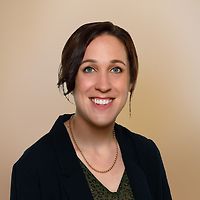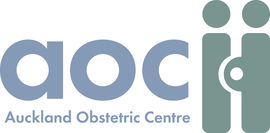Central Auckland, East Auckland, North Auckland, South Auckland, West Auckland > Private Hospitals & Specialists >
Auckland Obstetric Centre
Private Service, Obstetrics (Maternity), Paediatrics, Gynaecology
Today
8:00 AM to 5:00 PM.
Description
Pregnancy is an exciting and life changing experience.
All of us at the Auckland Obstetric Centre understand just how special this time is. Our specialists at AOC work as a team, with many years of experience and the expertise to give you and your baby the highest standard of pregnancy care. Between us, we will look after you from early pregnancy through to your birth and post-natal period. All of us feel privileged to be able to share in the care of women during their pregnancy.
Staff
The AOC team has worked as a group practice of obstetric specialists since 1996. We were originally based in a small villa in Parnell and now occupy part of the ground floor of the Birthcare building in Titoki Street. As a group we have cared for women birthing over seventeen thousand babies.
Consultants
-

Dr Lynda Batcheler
Consultant Obstetrician (Locum)
-

Dr Astrid Budden
Obstetrician
-

Dr Ashley Eastwood
Consultant Obstetrician
-

Dr Emma Ellis
Consultant Obstetrician
-

Dr Kerrie Hides
Consultant Obstetrician
-

Dr Katherine McKenzie
Obstetrician
-

Dr Peter Nobbs
Paediatrician
-

Dr Kirstie Peake
Obstetrician
-

Dr Martin Sowter
Consultant Obstetrician
Doctors
-

Dr Aimee Brighton
Consultant Obstetrician
Referral Expectations
You do not need a doctor's referral to book with us. Please contact us as soon as possible to secure your space.
We like to see you for your initial booking visit at about your 10th or 11th week. This appointment takes 45 minutes. Please contact us as soon as you have a confirmed pregnancy to ensure a suitable booking time.
Fees and Charges Description
We offer a set fee which is all-inclusive, regardless of pregnancy complications or how your baby is born. Our fee also includes postnatal midwifery visits and your six week postnatal check-up. The fee for full pregnancy care can be paid by instalments during your pregnancy. Please see our website for our current fees.
Hours
8:00 AM to 5:00 PM.
| Mon – Fri | 8:00 AM – 5:00 PM |
|---|
Outside these hours, AOC patients with urgent obstetric problems can also call the duty doctor on 09 367 1200.
Services / Procedures / Treatments / Common Conditions
As a group practice, we have a collaborative approach, sharing expertise and patient care. We encourage you to meet all your AOC obstetricians during your antenatal visits. This ensures that you will have met the doctor looking after you when your baby is born. Our all-inclusive fee offers peace of mind, covering everything, no matter how your pregnancy unfolds or how your baby is born. This also includes postnatal midwifery visits and your six-week postnatal check-up, ensuring continuous support during your recovery. We have clinics every day Monday to Friday. When you come to visit us at AOC you are welcome to bring your partner or a member of your family or whanau. We will help you to make informed decisions. We recognise that pregnancy care is very much a partnership. We recommend booking with us at the earliest stage of your pregnancy.
As a group practice, we have a collaborative approach, sharing expertise and patient care. We encourage you to meet all your AOC obstetricians during your antenatal visits. This ensures that you will have met the doctor looking after you when your baby is born. Our all-inclusive fee offers peace of mind, covering everything, no matter how your pregnancy unfolds or how your baby is born. This also includes postnatal midwifery visits and your six-week postnatal check-up, ensuring continuous support during your recovery. We have clinics every day Monday to Friday. When you come to visit us at AOC you are welcome to bring your partner or a member of your family or whanau. We will help you to make informed decisions. We recognise that pregnancy care is very much a partnership. We recommend booking with us at the earliest stage of your pregnancy.
When you phone AOC to make a booking we will usually arrange your first consultation for about your 10th to 11th week of pregnancy. This initial appointment is 45 minutes long. At your first visit to AOC we can arrange for you to have a set of booking bloods taken if this hasn’t been done already by your GP. Ideally this is done during the first twelve weeks of your pregnancy. These tests are all done on a single blood sample. Most women at this stage feel tired and experience “morning sickness”, which may occur through much of the day. You may also find you need to go to sleep much earlier than usual. Some women also experience constipation and breast tenderness. Don’t worry: most of these symptoms subside and you will feel much more energetic as your first trimester symptoms start to settle. You should be taking a folic acid supplement during the first trimester at a dose of 800 micrograms (0.8 milligrams) daily. You should also be taking an iodine supplement at a dose of 150 micrograms (0.15 milligrams) throughout your pregnancy and while breastfeeding.
When you phone AOC to make a booking we will usually arrange your first consultation for about your 10th to 11th week of pregnancy. This initial appointment is 45 minutes long. At your first visit to AOC we can arrange for you to have a set of booking bloods taken if this hasn’t been done already by your GP. Ideally this is done during the first twelve weeks of your pregnancy. These tests are all done on a single blood sample. Most women at this stage feel tired and experience “morning sickness”, which may occur through much of the day. You may also find you need to go to sleep much earlier than usual. Some women also experience constipation and breast tenderness. Don’t worry: most of these symptoms subside and you will feel much more energetic as your first trimester symptoms start to settle. You should be taking a folic acid supplement during the first trimester at a dose of 800 micrograms (0.8 milligrams) daily. You should also be taking an iodine supplement at a dose of 150 micrograms (0.15 milligrams) throughout your pregnancy and while breastfeeding.
When you phone AOC to make a booking we will usually arrange your first consultation for about your 10th to 11th week of pregnancy. This initial appointment is 45 minutes long.
At your first visit to AOC we can arrange for you to have a set of booking bloods taken if this hasn’t been done already by your GP. Ideally this is done during the first twelve weeks of your pregnancy. These tests are all done on a single blood sample.
Most women at this stage feel tired and experience “morning sickness”, which may occur through much of the day. You may also find you need to go to sleep much earlier than usual. Some women also experience constipation and breast tenderness. Don’t worry: most of these symptoms subside and you will feel much more energetic as your first trimester symptoms start to settle.
You should be taking a folic acid supplement during the first trimester at a dose of 800 micrograms (0.8 milligrams) daily. You should also be taking an iodine supplement at a dose of 150 micrograms (0.15 milligrams) throughout your pregnancy and while breastfeeding.
Most women are aware of a “bump” from about 12 to 14 weeks after their last period but at first it may only be obvious at the end of the day. By 14 to 16 weeks your pregnancy “bump” should be noticeable to family and colleagues at work. Between 18 and 20 weeks most women will have started to feel baby moving. During the early part of the second trimester there are some further screening tests that many women opt to have. These include screening tests for Down Syndrome that comprise a blood test at 9 to 14 weeks and a nuchal translucency scan at 11 to 14 weeks. The results of these two tests are used together as a “combined screening test” to produce an individualised assessment of the chances of you having a baby with Down syndrome. For more information, see our Medical Testing page. At 18 to 20 weeks most women will have an anatomy scan to check baby’s heart, spine, brain and other important organs. This scan also checks that the placenta is in the right place and that your baby has grown appropriately. At this stage we are only seeing you every four weeks but there is no need to save all your queries for your clinic visits. You can email or call us between appointments with any questions or concerns that you might have. If you are planning to attend antenatal classes it is worth booking these now as they fill up quickly. AOC proudly supports Nine Antenatal - a class specifically for AOC clients and held onsite nineantenatal.com At 26 weeks you will have a second set of blood tests to screen for diabetes (the polycose test), anaemia and blood group antibodies. If you are travelling overseas at this time do check that your insurance covers problems in pregnancy as most insurance companies will not cover you after 24 weeks. You will also need to start planning when you will cut back or stop working.
Most women are aware of a “bump” from about 12 to 14 weeks after their last period but at first it may only be obvious at the end of the day. By 14 to 16 weeks your pregnancy “bump” should be noticeable to family and colleagues at work. Between 18 and 20 weeks most women will have started to feel baby moving. During the early part of the second trimester there are some further screening tests that many women opt to have. These include screening tests for Down Syndrome that comprise a blood test at 9 to 14 weeks and a nuchal translucency scan at 11 to 14 weeks. The results of these two tests are used together as a “combined screening test” to produce an individualised assessment of the chances of you having a baby with Down syndrome. For more information, see our Medical Testing page. At 18 to 20 weeks most women will have an anatomy scan to check baby’s heart, spine, brain and other important organs. This scan also checks that the placenta is in the right place and that your baby has grown appropriately. At this stage we are only seeing you every four weeks but there is no need to save all your queries for your clinic visits. You can email or call us between appointments with any questions or concerns that you might have. If you are planning to attend antenatal classes it is worth booking these now as they fill up quickly. AOC proudly supports Nine Antenatal - a class specifically for AOC clients and held onsite nineantenatal.com At 26 weeks you will have a second set of blood tests to screen for diabetes (the polycose test), anaemia and blood group antibodies. If you are travelling overseas at this time do check that your insurance covers problems in pregnancy as most insurance companies will not cover you after 24 weeks. You will also need to start planning when you will cut back or stop working.
Most women are aware of a “bump” from about 12 to 14 weeks after their last period but at first it may only be obvious at the end of the day. By 14 to 16 weeks your pregnancy “bump” should be noticeable to family and colleagues at work. Between 18 and 20 weeks most women will have started to feel baby moving.
During the early part of the second trimester there are some further screening tests that many women opt to have. These include screening tests for Down Syndrome that comprise a blood test at 9 to 14 weeks and a nuchal translucency scan at 11 to 14 weeks. The results of these two tests are used together as a “combined screening test” to produce an individualised assessment of the chances of you having a baby with Down syndrome. For more information, see our Medical Testing page.
At 18 to 20 weeks most women will have an anatomy scan to check baby’s heart, spine, brain and other important organs. This scan also checks that the placenta is in the right place and that your baby has grown appropriately.
At this stage we are only seeing you every four weeks but there is no need to save all your queries for your clinic visits. You can email or call us between appointments with any questions or concerns that you might have.
If you are planning to attend antenatal classes it is worth booking these now as they fill up quickly. AOC proudly supports Nine Antenatal - a class specifically for AOC clients and held onsite nineantenatal.com
At 26 weeks you will have a second set of blood tests to screen for diabetes (the polycose test), anaemia and blood group antibodies.
If you are travelling overseas at this time do check that your insurance covers problems in pregnancy as most insurance companies will not cover you after 24 weeks. You will also need to start planning when you will cut back or stop working.
During the third trimester we are seeing you in clinic every two weeks and then weekly from 36 weeks. At about 35 weeks you will have an extended appointment to discuss your birth plan and make sure we know how you wish to be cared for during labour. Your partner should also attend this appointment. Baby’s movements may start to follow more of a pattern with movements being more marked in the evening or at bedtime. Many women do not sleep well in late pregnancy so make time for a rest during the day. Do call if you are worried that baby is moving less often or you experience any abdominal pain or bleeding. Most women will go into labour within a few days of their due date. For some women it may be safer for their baby to be born earlier by induction or caesarean section and if we have any concerns about how or when your baby should be born we will discuss those with you. We will also organise closer monitoring of you and your baby if you are still pregnant after your due date. You may also wish to express and store colostrum in the last few weeks of your pregnancy, particularly if an early birth is anticipated, you have had problems breastfeeding before or have diabetes in pregnancy. You can read or download a brochure from National Women’s Health with information on antenatal expressing and how to store colostrum here.
During the third trimester we are seeing you in clinic every two weeks and then weekly from 36 weeks. At about 35 weeks you will have an extended appointment to discuss your birth plan and make sure we know how you wish to be cared for during labour. Your partner should also attend this appointment. Baby’s movements may start to follow more of a pattern with movements being more marked in the evening or at bedtime. Many women do not sleep well in late pregnancy so make time for a rest during the day. Do call if you are worried that baby is moving less often or you experience any abdominal pain or bleeding. Most women will go into labour within a few days of their due date. For some women it may be safer for their baby to be born earlier by induction or caesarean section and if we have any concerns about how or when your baby should be born we will discuss those with you. We will also organise closer monitoring of you and your baby if you are still pregnant after your due date. You may also wish to express and store colostrum in the last few weeks of your pregnancy, particularly if an early birth is anticipated, you have had problems breastfeeding before or have diabetes in pregnancy. You can read or download a brochure from National Women’s Health with information on antenatal expressing and how to store colostrum here.
During the third trimester we are seeing you in clinic every two weeks and then weekly from 36 weeks. At about 35 weeks you will have an extended appointment to discuss your birth plan and make sure we know how you wish to be cared for during labour. Your partner should also attend this appointment.
Baby’s movements may start to follow more of a pattern with movements being more marked in the evening or at bedtime. Many women do not sleep well in late pregnancy so make time for a rest during the day. Do call if you are worried that baby is moving less often or you experience any abdominal pain or bleeding.
Most women will go into labour within a few days of their due date. For some women it may be safer for their baby to be born earlier by induction or caesarean section and if we have any concerns about how or when your baby should be born we will discuss those with you. We will also organise closer monitoring of you and your baby if you are still pregnant after your due date.
You may also wish to express and store colostrum in the last few weeks of your pregnancy, particularly if an early birth is anticipated, you have had problems breastfeeding before or have diabetes in pregnancy. You can read or download a brochure from National Women’s Health with information on antenatal expressing and how to store colostrum here.
This is a procedure used to evaluate the health of your unborn baby and identify any problems that may exist. Using ultrasound as a guide, a thin needle is inserted through your stomach into your uterus (womb). A small sample of the amniotic fluid that surrounds your baby is then taken. This fluid contains cells from the baby, which are then studied in the laboratory. The best time to perform amniocentesis is in the 16th week of pregnancy.
This is a procedure used to evaluate the health of your unborn baby and identify any problems that may exist. Using ultrasound as a guide, a thin needle is inserted through your stomach into your uterus (womb). A small sample of the amniotic fluid that surrounds your baby is then taken. This fluid contains cells from the baby, which are then studied in the laboratory. The best time to perform amniocentesis is in the 16th week of pregnancy.
This is a procedure used to evaluate the health of your unborn baby and identify any problems that may exist. Using ultrasound as a guide, a thin needle is inserted through your stomach into your uterus (womb). A small sample of the amniotic fluid that surrounds your baby is then taken. This fluid contains cells from the baby, which are then studied in the laboratory.
The best time to perform amniocentesis is in the 16th week of pregnancy.
Women we look after at AOC give birth in the labour and birthing suite of National Women’s Health at Auckland City Hospital. Situated on the 9th floor, all the rooms are spacious with en-suite bathrooms and toilets. From most rooms there are views across the city and there is ample space for family and visitors. Many of the rooms have hot tubs. In the event of any problems in labour paediatricians, anaesthetists and a caesarean section theatre are all close at hand. Many thousands of women have benefited from the supportive and warm atmosphere of National Women’s. All of us at AOC feel it is a very caring and safe place to give birth. If you are admitted to hospital at any time during your pregnancy or have a problem that needs urgent review outside of clinic hours you will usually be seen in the Women’s Assessment Unit (WAU) – also on the ninth floor of Auckland City Hospital. Watch a “virtual tour” of the labour and birthing suite here.
Women we look after at AOC give birth in the labour and birthing suite of National Women’s Health at Auckland City Hospital. Situated on the 9th floor, all the rooms are spacious with en-suite bathrooms and toilets. From most rooms there are views across the city and there is ample space for family and visitors. Many of the rooms have hot tubs. In the event of any problems in labour paediatricians, anaesthetists and a caesarean section theatre are all close at hand. Many thousands of women have benefited from the supportive and warm atmosphere of National Women’s. All of us at AOC feel it is a very caring and safe place to give birth. If you are admitted to hospital at any time during your pregnancy or have a problem that needs urgent review outside of clinic hours you will usually be seen in the Women’s Assessment Unit (WAU) – also on the ninth floor of Auckland City Hospital. Watch a “virtual tour” of the labour and birthing suite here.
Women we look after at AOC give birth in the labour and birthing suite of National Women’s Health at Auckland City Hospital. Situated on the 9th floor, all the rooms are spacious with en-suite bathrooms and toilets. From most rooms there are views across the city and there is ample space for family and visitors. Many of the rooms have hot tubs. In the event of any problems in labour paediatricians, anaesthetists and a caesarean section theatre are all close at hand.
Many thousands of women have benefited from the supportive and warm atmosphere of National Women’s. All of us at AOC feel it is a very caring and safe place to give birth. If you are admitted to hospital at any time during your pregnancy or have a problem that needs urgent review outside of clinic hours you will usually be seen in the Women’s Assessment Unit (WAU) – also on the ninth floor of Auckland City Hospital.
Watch a “virtual tour” of the labour and birthing suite here.
In the last few weeks of your pregnancy we will talk over your options for pain relief. Entonox (“gas and air”), pethidine, hot tubs and a 24 hour epidural service are all available at National Women’s. If you are considering using TENS you will need to hire this from a pharmacy in the last few weeks of pregnancy. We encourage you to keep an open mind about pain relief – sometimes an epidural is the best option but equally often you may surprise yourself by how well you cope with relatively little pain relief.
In the last few weeks of your pregnancy we will talk over your options for pain relief. Entonox (“gas and air”), pethidine, hot tubs and a 24 hour epidural service are all available at National Women’s. If you are considering using TENS you will need to hire this from a pharmacy in the last few weeks of pregnancy. We encourage you to keep an open mind about pain relief – sometimes an epidural is the best option but equally often you may surprise yourself by how well you cope with relatively little pain relief.
In the last few weeks of your pregnancy we will talk over your options for pain relief. Entonox (“gas and air”), pethidine, hot tubs and a 24 hour epidural service are all available at National Women’s. If you are considering using TENS you will need to hire this from a pharmacy in the last few weeks of pregnancy. We encourage you to keep an open mind about pain relief – sometimes an epidural is the best option but equally often you may surprise yourself by how well you cope with relatively little pain relief.
If you are not progressing in labour or there is concern about baby’s well-being, delivery by caesarean section may be a safer option than continuing on in labour. The decision making around this will always be done with you and your partner. Only very rarely does this need to be done very quickly and in almost all cases a caesarean section can be performed with an epidural for pain relief and your partner coming with you into the operating theatre. Very occasionally, a general anaesthetic is needed and then your partner is not able to come with you into the operating theatre. A team of experienced anaesthetists and support staff are always close at hand should a caesarean section be the safest way for baby to be born. If your baby is born by caesarean section it will stay with you in the operating theatre until you are moved to the theatre recovery area and your partner can help weigh and dress baby. You can usually give baby a cuddle and have “skin to skin” contact with baby within a few minutes of it being born. You can also usually start breast feeding your baby in the operating theatre or as soon as you are in the theatre recovery area. If your baby is going to be delivered by a planned or “elective” caesarean section then you will usually attend a pre-admission clinic a couple of days before to meet one of the anaesthetists who will review your medical history and answer any questions you have about epidural or general anaesthesia and post-operative pain relief. Some blood will also need to be taken to check for any possible problems with cross matching blood in the unlikely event of you needing a blood transfusion. You will be admitted to the hospital a couple of hours before your caesarean section time. Usually, baby is born close to the planned time of your operation but occasionally elective cases are delayed by unexpected emergencies.
If you are not progressing in labour or there is concern about baby’s well-being, delivery by caesarean section may be a safer option than continuing on in labour. The decision making around this will always be done with you and your partner. Only very rarely does this need to be done very quickly and in almost all cases a caesarean section can be performed with an epidural for pain relief and your partner coming with you into the operating theatre. Very occasionally, a general anaesthetic is needed and then your partner is not able to come with you into the operating theatre. A team of experienced anaesthetists and support staff are always close at hand should a caesarean section be the safest way for baby to be born. If your baby is born by caesarean section it will stay with you in the operating theatre until you are moved to the theatre recovery area and your partner can help weigh and dress baby. You can usually give baby a cuddle and have “skin to skin” contact with baby within a few minutes of it being born. You can also usually start breast feeding your baby in the operating theatre or as soon as you are in the theatre recovery area. If your baby is going to be delivered by a planned or “elective” caesarean section then you will usually attend a pre-admission clinic a couple of days before to meet one of the anaesthetists who will review your medical history and answer any questions you have about epidural or general anaesthesia and post-operative pain relief. Some blood will also need to be taken to check for any possible problems with cross matching blood in the unlikely event of you needing a blood transfusion. You will be admitted to the hospital a couple of hours before your caesarean section time. Usually, baby is born close to the planned time of your operation but occasionally elective cases are delayed by unexpected emergencies.
If you are not progressing in labour or there is concern about baby’s well-being, delivery by caesarean section may be a safer option than continuing on in labour. The decision making around this will always be done with you and your partner. Only very rarely does this need to be done very quickly and in almost all cases a caesarean section can be performed with an epidural for pain relief and your partner coming with you into the operating theatre. Very occasionally, a general anaesthetic is needed and then your partner is not able to come with you into the operating theatre. A team of experienced anaesthetists and support staff are always close at hand should a caesarean section be the safest way for baby to be born.
If your baby is born by caesarean section it will stay with you in the operating theatre until you are moved to the theatre recovery area and your partner can help weigh and dress baby. You can usually give baby a cuddle and have “skin to skin” contact with baby within a few minutes of it being born. You can also usually start breast feeding your baby in the operating theatre or as soon as you are in the theatre recovery area.
If your baby is going to be delivered by a planned or “elective” caesarean section then you will usually attend a pre-admission clinic a couple of days before to meet one of the anaesthetists who will review your medical history and answer any questions you have about epidural or general anaesthesia and post-operative pain relief. Some blood will also need to be taken to check for any possible problems with cross matching blood in the unlikely event of you needing a blood transfusion. You will be admitted to the hospital a couple of hours before your caesarean section time. Usually, baby is born close to the planned time of your operation but occasionally elective cases are delayed by unexpected emergencies.
Postnatal depression (PND) is a term used to cover a number of emotional changes that can occur after giving birth, and sometimes during pregnancy. Between 10 and 15% of women in New Zealand suffer from some form of postnatal depression, so it really is quite common and it is important to be aware of what can happen and how to get help. Most women will experience “Baby Blues” or “day three” blues during the first week after having a baby – you may have mood swings, episodes of anxiety, tearfulness or a feeling of just not coping. This lasts a few days only. PND can start at any time in the year after having a baby. Usually it starts in the first six weeks but can begin months later. There are a number of different symptoms and it may be hard to tell if this is “just being a mother” or PND, especially if this is your first baby and there is nothing to compare your current experiences to. Often women feel they are a bad mother or have failed in some way – this is not true. Symptoms of PND Changes in mood – this may vary through the day from quite well to very depressed and low Sleep problems not related to baby’s need, for example being unable to get back to sleep after feeding or sleeping too much Appetite disturbance – not feeling hungry or eating too much Exhaustion and/or over activity Feeling tearful or irritable Anxiety symptoms – tension, shakiness, feeling “unreal”, panic attacks Developing memory and concentration problems Low self-esteem and loss of confidence, feeling guilty and inadequate A fear of being alone or fear of being with others Loss of interest in sex Obsessive, negative or morbid thoughts, fears of harming yourself or your baby Feeling life is meaningless What to do About PND The “Baby Blues” are self-limiting and do not require treatment. PND varies in severity and some women will need to take anti-depressant medication. Other women will get better with extra practical support and counselling. Do contact us if you or your partner is worried about the development of PND. Treatments are very effective and we can organise help quickly. Family Support Many couples have become used to living without the support of their parents and extended family but a new baby is a time when as much family help as possible is needed. Try to make room for your parents to visit regularly or stay for a couple of weeks. They may need some ground rules and a daily list of tasks: a grandchild might be a new experience for them too. Other grandparents will be old hands and be delighted to help. Make as much use of friends and neighbours as you can for meals, washing and household tasks. If your parents are coming from overseas and visas could be a problem talk to us – sometimes a supporting letter from a lead maternity carer explaining why family support is needed can be helpful. Extra Help Breast feeding, care for older siblings, keeping up with cleaning and cooking or just general exhaustion are all a problem for new mums and dads. There are many ways you can access extra help with a new baby. Friends are often only too happy to come and do some cooking, shopping or cleaning – you only have to ask. Agencies such as Karitane can offer nursing support for new mothers. Look on our Helpful Information page for details of useful organisations. Spend as much on cleaners and childcare for older siblings as you can afford. This is all worth arranging in advance during the last few weeks before your baby is born.
Postnatal depression (PND) is a term used to cover a number of emotional changes that can occur after giving birth, and sometimes during pregnancy. Between 10 and 15% of women in New Zealand suffer from some form of postnatal depression, so it really is quite common and it is important to be aware of what can happen and how to get help. Most women will experience “Baby Blues” or “day three” blues during the first week after having a baby – you may have mood swings, episodes of anxiety, tearfulness or a feeling of just not coping. This lasts a few days only. PND can start at any time in the year after having a baby. Usually it starts in the first six weeks but can begin months later. There are a number of different symptoms and it may be hard to tell if this is “just being a mother” or PND, especially if this is your first baby and there is nothing to compare your current experiences to. Often women feel they are a bad mother or have failed in some way – this is not true. Symptoms of PND Changes in mood – this may vary through the day from quite well to very depressed and low Sleep problems not related to baby’s need, for example being unable to get back to sleep after feeding or sleeping too much Appetite disturbance – not feeling hungry or eating too much Exhaustion and/or over activity Feeling tearful or irritable Anxiety symptoms – tension, shakiness, feeling “unreal”, panic attacks Developing memory and concentration problems Low self-esteem and loss of confidence, feeling guilty and inadequate A fear of being alone or fear of being with others Loss of interest in sex Obsessive, negative or morbid thoughts, fears of harming yourself or your baby Feeling life is meaningless What to do About PND The “Baby Blues” are self-limiting and do not require treatment. PND varies in severity and some women will need to take anti-depressant medication. Other women will get better with extra practical support and counselling. Do contact us if you or your partner is worried about the development of PND. Treatments are very effective and we can organise help quickly. Family Support Many couples have become used to living without the support of their parents and extended family but a new baby is a time when as much family help as possible is needed. Try to make room for your parents to visit regularly or stay for a couple of weeks. They may need some ground rules and a daily list of tasks: a grandchild might be a new experience for them too. Other grandparents will be old hands and be delighted to help. Make as much use of friends and neighbours as you can for meals, washing and household tasks. If your parents are coming from overseas and visas could be a problem talk to us – sometimes a supporting letter from a lead maternity carer explaining why family support is needed can be helpful. Extra Help Breast feeding, care for older siblings, keeping up with cleaning and cooking or just general exhaustion are all a problem for new mums and dads. There are many ways you can access extra help with a new baby. Friends are often only too happy to come and do some cooking, shopping or cleaning – you only have to ask. Agencies such as Karitane can offer nursing support for new mothers. Look on our Helpful Information page for details of useful organisations. Spend as much on cleaners and childcare for older siblings as you can afford. This is all worth arranging in advance during the last few weeks before your baby is born.
Postnatal depression (PND) is a term used to cover a number of emotional changes that can occur after giving birth, and sometimes during pregnancy.
Between 10 and 15% of women in New Zealand suffer from some form of postnatal depression, so it really is quite common and it is important to be aware of what can happen and how to get help.
Most women will experience “Baby Blues” or “day three” blues during the first week after having a baby – you may have mood swings, episodes of anxiety, tearfulness or a feeling of just not coping. This lasts a few days only.
PND can start at any time in the year after having a baby. Usually it starts in the first six weeks but can begin months later. There are a number of different symptoms and it may be hard to tell if this is “just being a mother” or PND, especially if this is your first baby and there is nothing to compare your current experiences to. Often women feel they are a bad mother or have failed in some way – this is not true.
Symptoms of PND
- Changes in mood – this may vary through the day from quite well to very depressed and low
- Sleep problems not related to baby’s need, for example being unable to get back to sleep after feeding or sleeping too much
- Appetite disturbance – not feeling hungry or eating too much
- Exhaustion and/or over activity
- Feeling tearful or irritable
- Anxiety symptoms – tension, shakiness, feeling “unreal”, panic attacks
- Developing memory and concentration problems
- Low self-esteem and loss of confidence, feeling guilty and inadequate
- A fear of being alone or fear of being with others
- Loss of interest in sex
- Obsessive, negative or morbid thoughts, fears of harming yourself or your baby
- Feeling life is meaningless
What to do About PND
The “Baby Blues” are self-limiting and do not require treatment. PND varies in severity and some women will need to take anti-depressant medication. Other women will get better with extra practical support and counselling. Do contact us if you or your partner is worried about the development of PND. Treatments are very effective and we can organise help quickly.
Family Support
Many couples have become used to living without the support of their parents and extended family but a new baby is a time when as much family help as possible is needed.
Try to make room for your parents to visit regularly or stay for a couple of weeks. They may need some ground rules and a daily list of tasks: a grandchild might be a new experience for them too. Other grandparents will be old hands and be delighted to help.
Make as much use of friends and neighbours as you can for meals, washing and household tasks.
If your parents are coming from overseas and visas could be a problem talk to us – sometimes a supporting letter from a lead maternity carer explaining why family support is needed can be helpful.
Extra Help
Breast feeding, care for older siblings, keeping up with cleaning and cooking or just general exhaustion are all a problem for new mums and dads.
There are many ways you can access extra help with a new baby. Friends are often only too happy to come and do some cooking, shopping or cleaning – you only have to ask.
Agencies such as Karitane can offer nursing support for new mothers. Look on our Helpful Information page for details of useful organisations.
Spend as much on cleaners and childcare for older siblings as you can afford. This is all worth arranging in advance during the last few weeks before your baby is born.
About one in six couples have problems starting a family and this proportion rises to one in three in older couples. After six months of trying to conceive about seven out of ten women should be pregnant. If you are not pregnant after this time, then ask your GP to arrange some tests to check all is well. If you have very irregular periods, a history of past pelvic infections such as Chlamydia or a partner who has had infertility problems in a previous relationship you may wish to seek help sooner. For information look at the fertility websites on our Helpful Information page.
About one in six couples have problems starting a family and this proportion rises to one in three in older couples. After six months of trying to conceive about seven out of ten women should be pregnant. If you are not pregnant after this time, then ask your GP to arrange some tests to check all is well. If you have very irregular periods, a history of past pelvic infections such as Chlamydia or a partner who has had infertility problems in a previous relationship you may wish to seek help sooner. For information look at the fertility websites on our Helpful Information page.
About one in six couples have problems starting a family and this proportion rises to one in three in older couples. After six months of trying to conceive about seven out of ten women should be pregnant. If you are not pregnant after this time, then ask your GP to arrange some tests to check all is well. If you have very irregular periods, a history of past pelvic infections such as Chlamydia or a partner who has had infertility problems in a previous relationship you may wish to seek help sooner.
For information look at the fertility websites on our Helpful Information page.
Most women who give birth at Auckland City Hospital will transfer to Birthcare about three to four hours after their baby is born and then stay at Birthcare for two to three days. This is an important time to learn how to look after your baby with help and advice readily available. The AOC doctor who looked after you in labour will visit you at Birthcare. If there are any concerns about you or your baby you will stay at Auckland City Hospital although you can often transfer to Birthcare the next day. If your baby is born by caesarean section then you will spend your first night at Auckland City Hospital but can usually transfer to Birthcare at 24 to 48 hours if you wish. Hospital accommodation is a mixture of single and double rooms. You will usually get a single room at Auckland City Hospital for most or all of your post-natal stay but may sometimes need to share if the hospital is very busy. At Birthcare there are fully subsidised shared rooms and single private rooms for which there is a charge. Some women go straight home from the labour and birthing suite, especially if it is not their first baby. This works well if you have a lot of support at home but most women are very appreciative of the rest and advice they receive during a postnatal stay at Birthcare or Auckland City Hospital.
Most women who give birth at Auckland City Hospital will transfer to Birthcare about three to four hours after their baby is born and then stay at Birthcare for two to three days. This is an important time to learn how to look after your baby with help and advice readily available. The AOC doctor who looked after you in labour will visit you at Birthcare. If there are any concerns about you or your baby you will stay at Auckland City Hospital although you can often transfer to Birthcare the next day. If your baby is born by caesarean section then you will spend your first night at Auckland City Hospital but can usually transfer to Birthcare at 24 to 48 hours if you wish. Hospital accommodation is a mixture of single and double rooms. You will usually get a single room at Auckland City Hospital for most or all of your post-natal stay but may sometimes need to share if the hospital is very busy. At Birthcare there are fully subsidised shared rooms and single private rooms for which there is a charge. Some women go straight home from the labour and birthing suite, especially if it is not their first baby. This works well if you have a lot of support at home but most women are very appreciative of the rest and advice they receive during a postnatal stay at Birthcare or Auckland City Hospital.
Most women who give birth at Auckland City Hospital will transfer to Birthcare about three to four hours after their baby is born and then stay at Birthcare for two to three days. This is an important time to learn how to look after your baby with help and advice readily available. The AOC doctor who looked after you in labour will visit you at Birthcare.
If there are any concerns about you or your baby you will stay at Auckland City Hospital although you can often transfer to Birthcare the next day. If your baby is born by caesarean section then you will spend your first night at Auckland City Hospital but can usually transfer to Birthcare at 24 to 48 hours if you wish. Hospital accommodation is a mixture of single and double rooms. You will usually get a single room at Auckland City Hospital for most or all of your post-natal stay but may sometimes need to share if the hospital is very busy. At Birthcare there are fully subsidised shared rooms and single private rooms for which there is a charge.
Some women go straight home from the labour and birthing suite, especially if it is not their first baby. This works well if you have a lot of support at home but most women are very appreciative of the rest and advice they receive during a postnatal stay at Birthcare or Auckland City Hospital.
Public Transport
The Auckland Transport website is a good resource to plan your public transport options.
Parking
Pay and display parking is available on the road or at the Museum.
Website
Contact Details
20 Titoki Street, Parnell, Auckland
Central Auckland
8:00 AM to 5:00 PM.
-
Phone
(09) 367 1200
Healthlink EDI
auckobst
Email
Website
Ground Floor
20 Titoki Street
Parnell
Auckland
Street Address
Ground Floor
20 Titoki Street
Parnell
Auckland
Postal Address
PO Box 109 276
Newmarket
Auckland 1149
Was this page helpful?
This page was last updated at 1:08PM on September 11, 2025. This information is reviewed and edited by Auckland Obstetric Centre.

